Indoor plants have various uses and one of the prominent uses is to treat depression. The history of plants used to treat depression goes far back. Humans have used plants to treat depression for centuries. In fact, some of the most popular antidepressants today are derived from plants.
“If we could see the miracle of a single flower clearly, our whole life would change.” -Buddha
The earliest known use of plants to treat depression is from the ancient Greeks. The Greek physician Hippocrates, who is considered the father of modern medicine, prescribed a number of plant-based remedies for mental illness.
One of the most popular plants used to treat depression is St. John’s Wort. This plant has been used for centuries to treat a variety of mental health conditions, including depression.
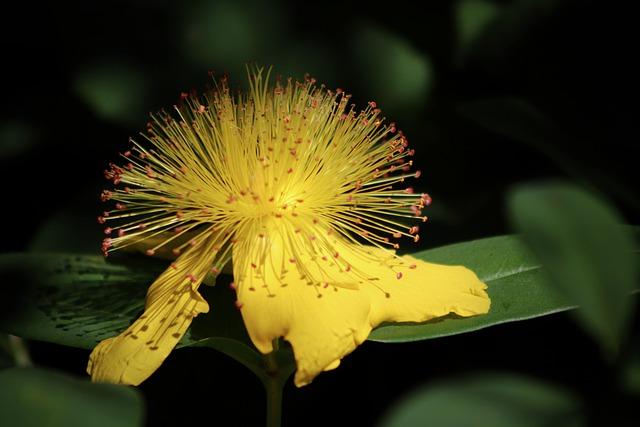
While the exact mechanism of action is not known, it is thought that St. John’s Wort works by increasing levels of serotonin, a neurotransmitter that is thought to be involved in regulating mood.
There is some scientific evidence to support the use of St. John’s Wort for treating mild to moderate depression. However, it is important to note that this herb can interact with other medications, so it is important to speak to a healthcare provider before taking it.
Other plants that have been traditionally used to treat depression include chamomile, lavender, and lemon balm. These herbs are thought to work by reducing stress and anxiety, which can leads to depression.
While there is not a lot of scientific evidence to support the use of these herbs for treating depression, many people find them to be helpful.
If you are interested in trying an herbal remedy for depression, it is important to speak to a healthcare provider first. This is to ensure that the herb is safe for you to take and to rule out any potential drug interactions.
The Different Types Of Plants Used To Treat Depression
There are different types of plants that have been used to treat depression. Some of the more common plants include St. John’s Wort, SAM-e, and 5-HTP.
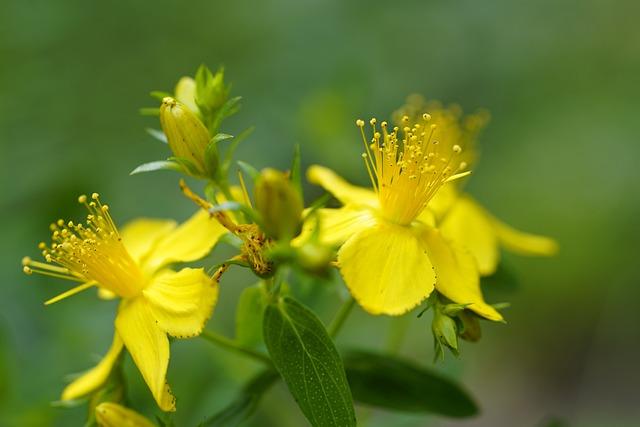
- St. John’s Wort is a plant that has been used for centuries to treat a variety of conditions, including depression. It works by increasing levels of serotonin in the brain.
- SAM-e is a compound that is found naturally in the body. It works by regulating the mood.
- 5-HTP is a compound that is found in the body and is a precursor to serotonin. Like St. John’s Wort, it also works by increasing levels of serotonin in the brain.
There are many other plants that have been used to treat depression. Some of the more uncommon plants include passionflower, kava, and valerian.
- Passionflower is a plant that has been used to treat anxiety and insomnia. It increases the level of gamma aminobutyric acid (GABA) in the brain.
- Kava is a plant that has been used to treat anxiety and insomnia. It affects the brain in a similar way to alcohol.
- Valerian is a plant that’s used to treat anxiety and insomnia. It also increase the level of gamma aminobutyric acid (GABA) in the brain.
The Benefits Of Plants Used To Treat Depression
Depression is a serious mental illness that can negatively affect how you feel, think, and handle day-to-day activities. While there are many different treatment options available, some people may find relief by using plants to treat their depression.
There are a number of different plants that have been shown to be effective in treating depression. St. John’s Wort, for example, is a plant that has been used for centuries to treat a variety of mental health conditions, including depression. Research has shown that St. John’s Wort can be as effective as some prescription antidepressants.
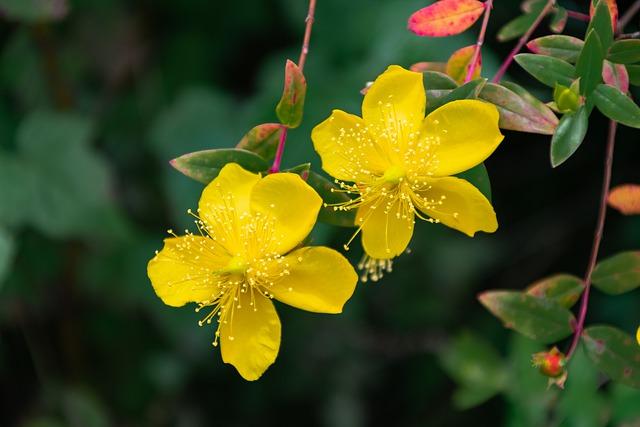
Other plants that have been shown to be effective in treating depression include SAM-e, omega-3 fatty acids, and saffron.
- SAM-e is a compound that is found naturally in the body and is involved in a number of biochemical reactions.
- Omega-3 fatty acids are found in fish oil and have been shown to be beneficial for a variety of mental health conditions, including depression.
- Saffron is a spice that has been used in traditional medicine for centuries and has been shown to be effective in treating depression.
If you are considering using plants to treat your depression, it is important to speak with your doctor first. While plants can be effective in treating depression, they can also interact with other medications you may be taking. Your doctor will be able to help you determine if using plants to treat your depression is right for you.
The Drawbacks Of Plants Used To Treat Depression
There are a few drawbacks to using plants to treat depression.
- It can be difficult to know which plant to use, as there are many different types of plants that have been used to treat depression.
- The effects of the plant may not last very long, and the person may need to take it regularly to maintain the benefits.
- Some plants can have side effects, such as nausea and vomiting, so it is important to talk to a doctor before taking any plant-based treatments.
The Most Effective Plants Used To Treat Depression
There are many different plants that have been traditionally used to treat depression. Some of the most effective plants for this purpose include St. John’s wort, SAMe, omega-3 fatty acids, and S-adenosyl-L-methionine.
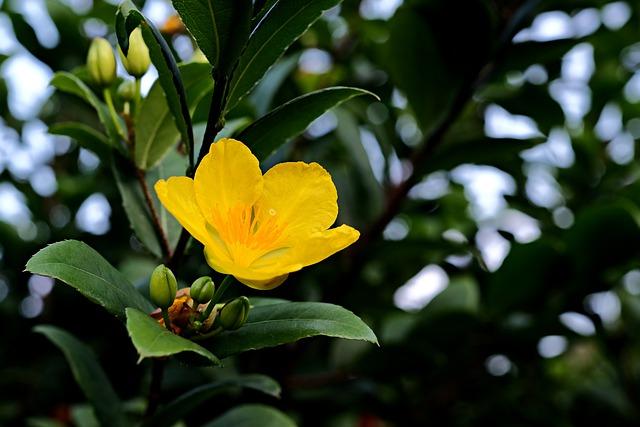
- St. John’s wort is a plant that has been used for centuries to treat a variety of conditions, including depression. The active ingredient in St. John’s wort is hypericin, which inhibits the uptake of serotonin, a neurotransmitter that plays a role in depression. A number of studies have shown that St. John’s wort is effective in treating mild to moderate depression.
- SAMe is a compound that is naturally present in the body and is involved in the metabolism of serotonin. Supplemental SAMe has been shown to be effective in treating depression, and it may be particularly helpful for people who do not respond to other treatments.
- Omega-3 fatty acids are essential nutrients that are involved in a number of biochemical processes in the body. Research has shown that people who consume diets high in omega-3 fatty acids are less likely to suffer from depression. Supplementing with omega-3 fatty acids may help to treat depression.
- S-adenosyl-L-methionine (SAMe) is a compound that is naturally present in the body and is involved in the metabolism of serotonin. Supplemental SAMe has been shown to be effective in treating depression, and it may be particularly helpful for people who do not respond to other treatments.
A number of other plants have also been traditionally used to treat depression. These include ginkgo biloba, passionflower, and valerian. While these plants have not been studied as extensively as St. John’s wort, SAMe, and omega-3 fatty acids, they may also be effective in treating depression.
The Safety Of Plants Used To Treat Depression
When it comes to plants that are used to treat depression, it is important to know that they are generally safe. However, as with any treatment, there are always some risks involved. It is important to speak with a healthcare professional before starting any new treatment, including using plants to treat depression.

There are a few different plants that have been traditionally used to treat depression. St. Johns Wort is one of the most well-known plants for this purpose. Other plants that have been used include SAM-e, 5-HTP, and kava kava.
- St. John’s Wort is generally considered to be safe when used as directed. However, there are some potential side effects, such as gastrointestinal upset, dry mouth, and dizziness. It can also interact with other medications, so it is important to speak with a healthcare professional before starting to take it.
- SAM-e is another plant that has been traditionally used to treat depression. It is generally considered to be safe, but there are some potential side effects, such as gastrointestinal upset, headache, and dizziness. It can also interact with other medications, so it is important to speak with a healthcare professional before starting to take it.
- 5-HTP is another plant that has been used to treat depression. It is generally considered to be safe, but there are some potential side effects, such as gastrointestinal upset, headache, and dizziness. 5-HTP can also interact with other medications, so it is important to speak with a healthcare professional before starting to take it.
- Kava is another plant that has been traditionally used to treat depression. It is generally considered to be safe, but there are some potential side effects, such as gastrointestinal upset, dry mouth, and dizziness. Kava kava can also interact with other medications, so it is important to speak with a healthcare professional before starting to take it.
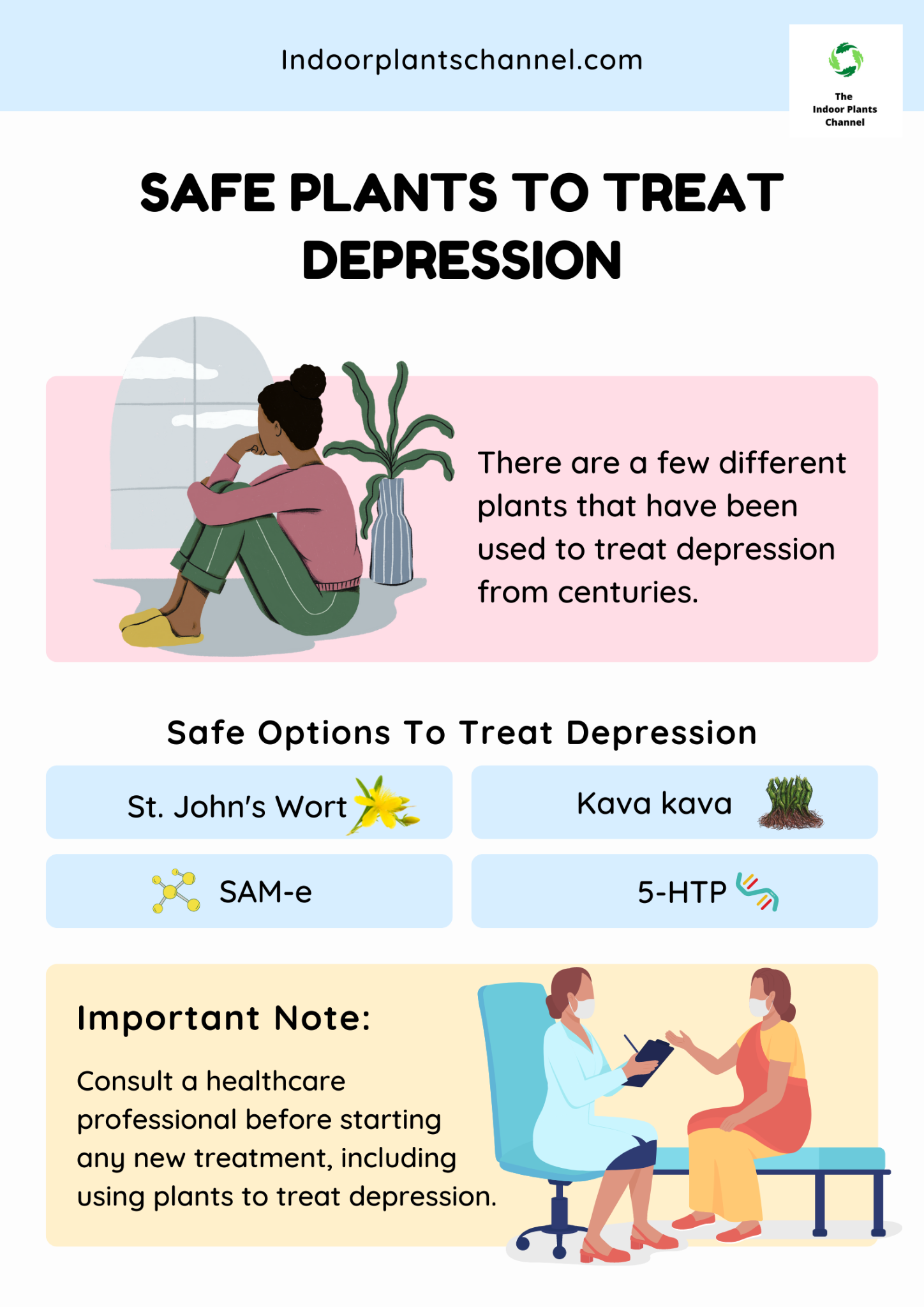
The Efficacy Of Plants Used To Treat Depression
Depression is a serious mood disorder that can negatively affect how you feel, think, and behave. Symptoms of depression can include persistent feelings of sadness, loss of interest in activities you once enjoyed, fatigue, difficulty concentrating, and thoughts of death or suicide.
While there is no one-size-fits-all treatment for depression, some people find that certain plants can help to ease their symptoms. St. John’s wort, for example, is a common herbal treatment for mild to moderate depression. Other plants that have been traditionally used to treat depression include passionflower, lemon balm, and ginkgo biloba.
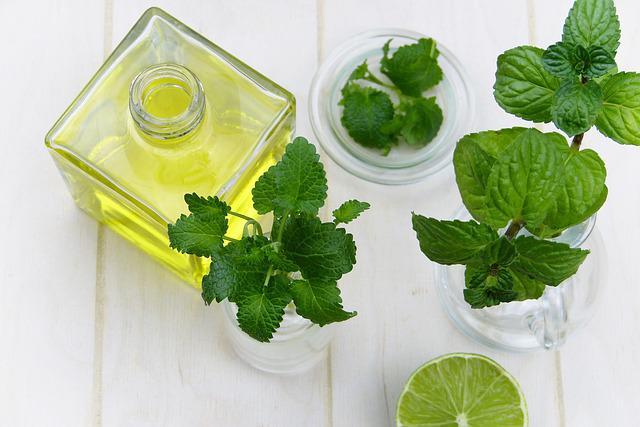
There is some scientific evidence to support the use of these plants for depression.
- St. John’s wort, for instance, has been shown to be as effective as some prescription antidepressants for mild to moderate depression.
- Passionflower has been shown to reduce anxiety, while lemon balm has been shown to improve mood and reduce stress.
If you are considering using a plant to treat your depression, it’s important to speak with your doctor first. Some plants can interact with medications you may be taking for depression, and some may not be suitable for people with certain medical conditions.
It’s also important to be aware that herbal treatments are not regulated by the FDA, so there is no guarantee of their safety or efficacy.
While there is no cure for depression, treatments that work for you can help you to manage your symptoms and improve your quality of life. If you’re considering using a plant to treat your depression, speak with your doctor to see if it’s right for you.
The Least Effective Plants Used To Treat Depression
There are a number of plants that have been traditionally used to treat depression. However, not all of these plants are equally effective. In fact, some of them are quite ineffective.
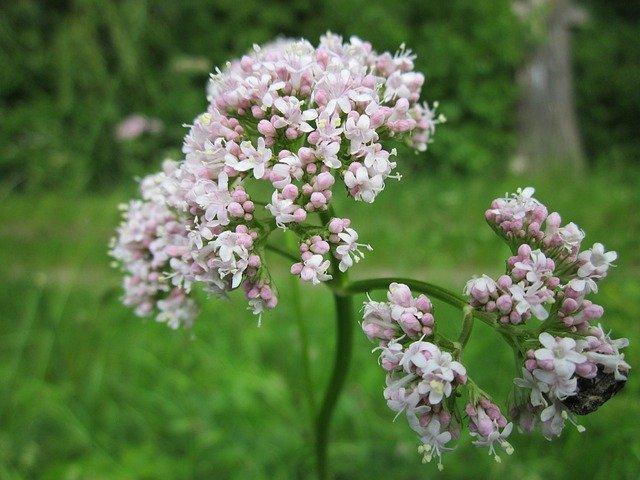
Here are some of the least effective plants used to treat depression:
1. St. John’s Wort
St. John’s Wort is a plant that has been used for centuries to treat depression. However, recent studies have shown that it is not very effective in treating this condition.
2. Kava
Kava is another plant that has been traditionally used to treat depression. However, like St. John’s Wort, it is not very effective in treating this condition.
3. Valerian
Valerian is a plant that has been used for centuries to treat anxiety and insomnia. However, it is not very effective in treating depression.
4. Passionflower
Passionflower is a plant that has been traditionally used to treat anxiety and insomnia. However, like Valerian, it is not very effective in treating depression.
5. Hops
Hops is a plant that has been traditionally used to make beer. However, it is not effective in treating depression.
If you are suffering from depression, it is best to consult with a mental health professional. There are a number of effective treatments for depression, including medication and therapy.
Frequently Asked Questions
What are some of the most popular plants used to treat depression?
There are many plants that have been traditionally used to treat depression. Some of the most popular include St. John’s Wort, SAMe, omega-3 fatty acids, and 5-HTP.
How do these plants work to treat depression?
The mechanisms by which these plants work to treat depression are not fully understood. It is thought that they may work by increasing levels of certain chemicals in the brain, such as serotonin or dopamine.
What is the evidence that these plants are effective in treating depression?
There is some evidence that these plants may be effective in treating depression. For example, a review of studies on St. John’s Wort found that it may be effective in treating mild to moderate depression. However, more research is needed to confirm these findings.
Are there any risks associated with taking these plants?
Yes, there are some risks associated with taking these plants. For instance, St. John’s Wort can interact with other medications, such as antidepressants, and 5-HTP can cause gastrointestinal problems. It is important to speak with a healthcare provider before taking any of these plants.
What are some other treatments for depression?
There are many other treatments for depression, including medication, therapy, and lifestyle changes. Speak with a healthcare provider to determine the best treatment for you.
Bonus Tip
- Research the history of plants used to treat depression and compile a list of plants with medicinal properties.
- Find a local herbalist or naturopathic doctor who can advise you on which plants may be most effective for treating depression.
- Visit a botanical garden or arboretum and learn more about the plants used to treat depression.
- Grow your own plants to treat depression, using seeds or cuttings from plants known to have medicinal properties.
- Make a tincture or infusion using plants known to treat depression, and take it as directed by a healthcare professional.
- Prepare a tea using plants known to treat depression and drink it daily.
- Make a compress using plants known to treat depression and apply it to the affected area.
- Soak in a bath made with plants known to treat depression.
- Use essential oils made from plants known to treat depression in a diffuser or in a massage.
- Keep a journal documenting your progress as you try different plants to treat depression.
Conclusion
Depression is a serious problem that can have a negative impact on every aspect of a person’s life. Fortunately, there are a number of effective treatments available, including medication, therapy, and self-care.
One of the most promising treatments for depression is plant-based therapy. There is a long history of using plants to treat depression, and recent research has shown that plant-based therapy can be an effective treatment for this condition. Common plants include Kava, St. John’s Wort, lavender etc. See the post above for more information about the history of plants used to treat depression.
Michelle Wilde
Related posts
4 Comments
Leave a Reply Cancel reply
![]()
About Michelle Wilde
Michelle Wilde is a stay-at-home mom and avid plant lover. Armed with a post-graduate degree in Computer Science (no kidding!), she loves researching plants and landscapes. When she is not caring for her 4 kids, she spends time on her passion for plants. She blogs at www.indoorplantschannel.com, the trusted source for indoor plants.
Learn more
Subscribe
* You will receive the latest posts and updates about indoor plants!
Search
Recent Posts
Categories
- Beginner Guides (10)
- FAQ (206)
- General (2)
- How-To Guides (212)
- Indoor Plants (214)
- Pest Management (2)
- Plant Problem Solutions (4)
- Seasonal Growing (2)
- Specialized Environments (2)
- Specific Plant Care (3)
- Technical Growing (2)
[…] history of using plants to treat depression dates back to ancient times. Plants have long been used for their medicinal properties and to treat […]
[…] There are many plants and other remedies that have been shown to be effective in treating depression. […]
[…] John’s Wort is a plant that has been used for centuries to treat depression. The active ingredient in St. John’s Wort is hypericin, which is thought to work by […]
[…] plants that have been shown to be helpful in treating depression include Lavender, Chamomile, Ginseng, Passionflower, and […]